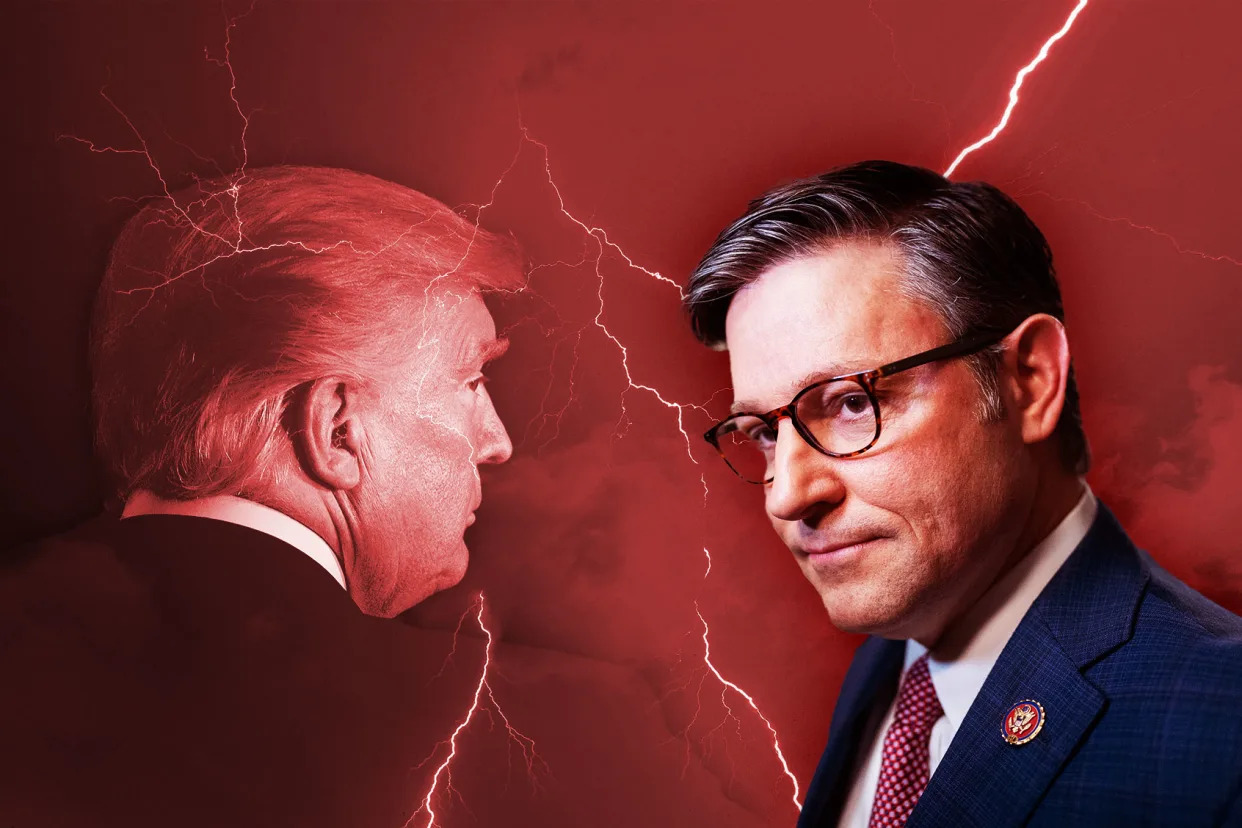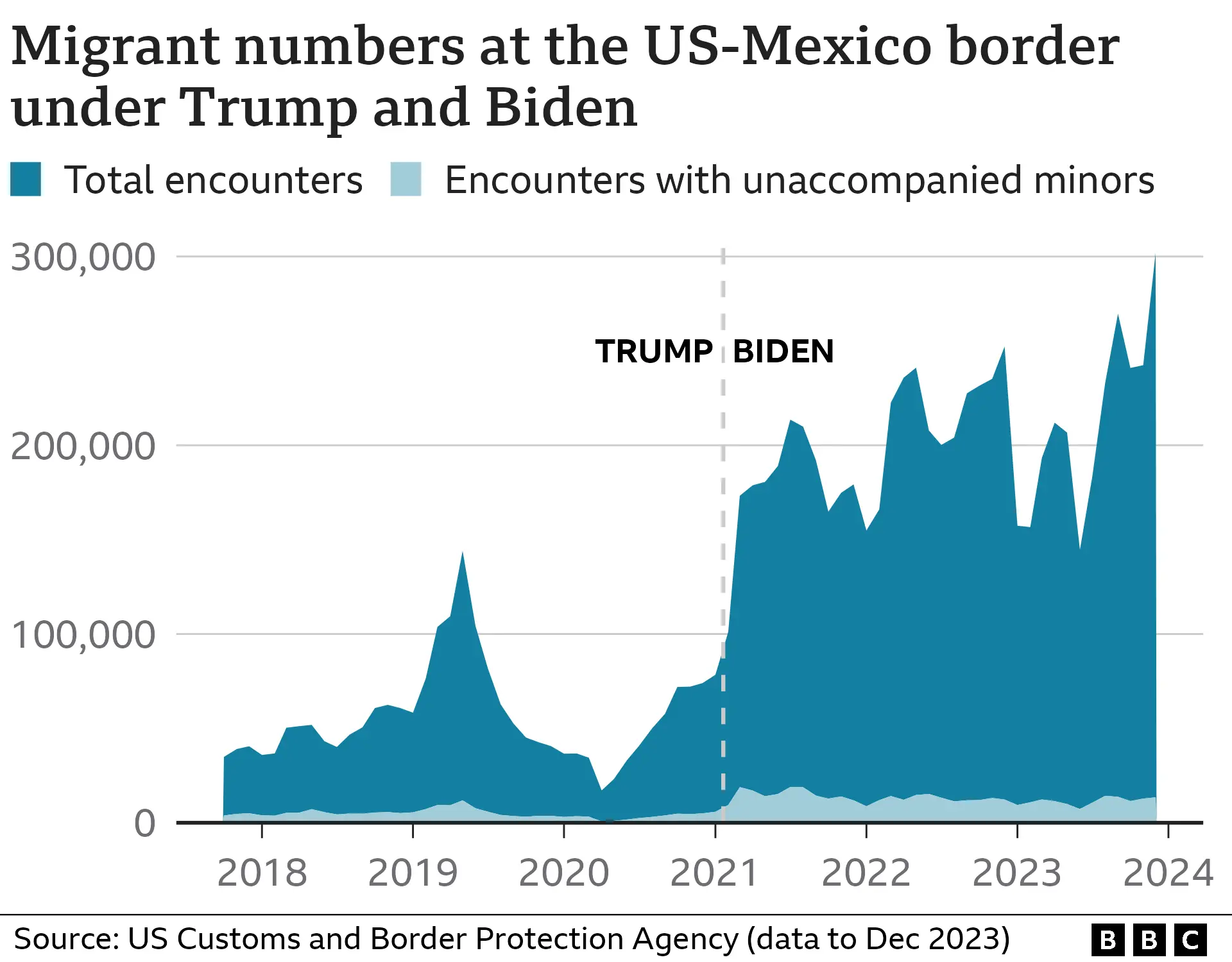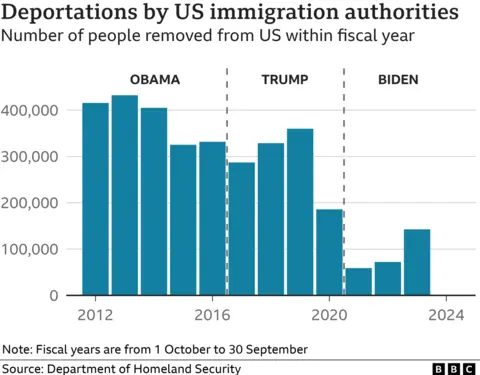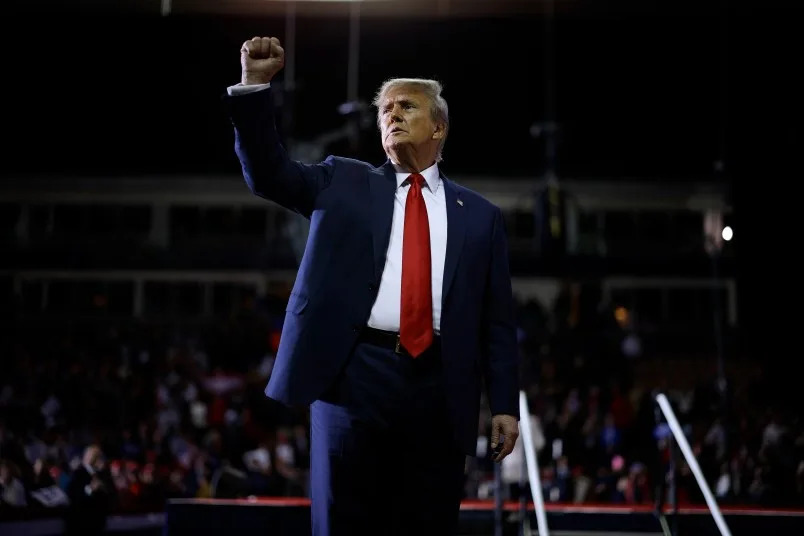The Guardian
Putin tells Tucker Carlson the US ‘needs to stop supplying weapons’ to Ukraine
Adam Gabbatt and Andrew Roth – February 8, 2024

Tucker Carlson and Vladimir Putin were in the spotlight on Thursday night, as the divisive, Trump-supporting rightwing commentator interviewed the reclusive Russian autocrat.
The rambling, two-hour interview, filmed in Moscow, was Putin’s first with a western media outlet since Russia invaded Ukraine in February 2022.
It marked a new level of infamy for Carlson, who has frequently criticized US support for Ukraine, has referred to Volodymyr Zelenskiy, the president of Ukraine, as a “Ukrainian pimp” and “rat-like”.
Carlson’s tone was less pugnacious in the interview with Putin, who he referred to as “Mr President” throughout.
The decision to interview Putin had been widely criticised ahead of the interview. But the opening of the conversation between the former Fox News host and Putin was a let down.
Putin spent more than 30 minutes giving a history of Russia, Lithuania, Poland and Ukraine, in a monologue that took viewers from the ninth century rule of Oleg the Wise, to the struggles of the 1300s, through to a critique of Lenin’s foreign policy.
When a baffled-looking Carlson finally coaxed Putin into the 21st century, the Russian president accused the US and other western countries of prolonging the war in Ukraine.
There were peace talks with Ukraine that were “almost finalized”, Putin said, but then Ukraine “threw away all these agreements and obeyed the instructions of western countries, European countries and the United States to fight Russia to the bitter end”.
Putin laid the blame at the feet of Boris Johnson, the former British prime minister, in particular. Johnson was forced out of UK parliament in June 2023, but Putin claimed that as prime minister he had dissuaded Zelenskiy from signing a peace deal in the early stages of the conflict.
“The fact that they [Ukraine] obey the demand or persuasion of Mr Johnson, the former prime minister of Great Britain, seems ridiculous,” Putin said.
In a video released ahead of the interview, Carlson said he was driven to speak to Putin, in part, because the American public has “no idea why Putin invaded Ukraine or what his goals are now”.
It’s unclear whether viewers will come away with a clearer sense of either.
In December, the Kremlin said engaging in peace talks with Ukraine is “unrealistic” – Ukraine has said peace can only be based on a full withdrawal from the territory Russia has seized since it invaded in 2022.
But in the interview, Putin told Carlson that Russia and the US still speak “through various agencies” about ending the conflict.
Russia’s message to the US, Putin said, is: “If you really want to stop fighting, you need to stop supplying weapons. It will be over within a few weeks.”
Putin said the last time he spoke to Joe Biden was before Russia invaded Ukraine.
“I said to him, then, I believe that you are making a huge mistake of historic proportions by supporting everything that is happening there, in Ukraine, by pushing Russia away,” Putin said.
Carlson did, at least, press Putin on Evan Gershkovich, the Wall Street Journal reporter who has been detained in Russia since 23 March having been accused of espionage – which Gershkovich and the Journal deny.
Putin claimed Gershkovich, 32, was “caught red-handed when he was secretly getting confidential information”, and alleged he was “working for the US special services”.
Russia is “ready to talk” about releasing Gershkovich, Putin said, but added: “We want the US special services to think about how they can contribute to achieving the goals our special services are pursuing.”
The claim seemed to contradict the White House, which said in December that Russia had rejected a substantial proposal for the release of Gershkovich and Paul Whelan, a former US Marine serving a 16-year sentence in Russia on espionage charges.
In a video published ahead of the interview, Carlson claimed he was conducting the interview because English-language “media outlets are corrupt – they lie to their readers and viewers”.
“There are risks to conducting an interview like this obviously, so we’ve thought about it for many months,” Carlson said.
“Most Americans have no real idea what is happening in this region. Here in Russia or 600 miles away in Ukraine. But they should know. They’re paying for much of it.”
Followers of Carlson over the past two years will be less surprised than others that Putin accepted the interview request.
Carlson was an early, notable defender of Russia’s invasion of Ukraine. As Putin amassed up to 190,000 troops on Ukraine’s border in mid-February 2022, Carlson appeared to echo Putin’s talking points by claiming the brewing conflict was a mere “border dispute”.
In the week following the attack, Russian state media played clips of Carlson’s rants about Ukraine and against the US providing military aid to the country.
The interview was aired on Tucker Carlson Tonight, a streaming service which Carlson launched in December 2023. Notably, Carlson was fired by Fox News in April 2023 – for getting “too big for his boots”, a book later claimed.
The rightwing commentator faced criticism for the interview before it aired. On Wednesday, Hillary Clinton said Carlson was a “useful idiot” for Putin.
“He says things that are not true,” the former US secretary of state said of Carlson.
“He parrots Vladimir Putin’s pack of lies about Ukraine, so I don’t see why Putin wouldn’t give him an interview because through him, he can continue to lie about what his objectives are in Ukraine and what he expects to see happen,” Clinton said on MSNBC Wednesday.
In his video announcing the interview, Carlson claimed that “not a single Western journalist has bothered” to attempt to interview Putin.
Abby Phillip, an anchor for CNN, said that was untrue.
“Serious outlets, including CNN, have requested Putin to interview over and over again,” she said in her show on Tuesday.
On Wednesday, the Kremlin also debunked Carlson’s claim.
“Mr Carlson is wrong,” Dmitry Peskov, a Kremlin spokesperson, said in a briefing. “We receive many requests for interviews with the president.”
Putin last gave an interview to a western outlet in 2021, when he spoke with a reporter for CNBC. He has largely ceased speaking with independent media, both Russian and international, since launching his full-scale invasion of Ukraine. Since 2021, he has only given interviews to Russian, Kazakh and Chinese media.
Press freedoms have largely disappeared in Russia over the past two decades, as pressure has grown on independent media and the danger of arrest has increased for local and foreign journalists working in the country.
The arrest of Gershkovich last year was a watershed attack on a foreign reporter in the post-cold war era.
But Russian journalists had already faced long prison sentences for their work and for angering Putin’s allies and friends.
In a particularly egregious verdict in 2022, Russian journalist Ivan Safronov was sentenced to 22 years in prison on treason charges widely seen as politically motivated. Safronov, who had previously worked at Kommersant, was thought to have angered the military by reporting on secret negotiations with Egypt, but all the information in his trial was secret. According to a lawyer, Safronov had been offered just a 12-year sentence if he incriminated others, but refused to cooperate.
Putin’s full-scale invasion of Ukraine has also sped up the crackdown on independent media. More than 1,000 journalists have fled the country, a number of high-profile criminal cases have been opened against reporters for discrediting the Russian army or spreading “fake news”, and legacy broadcast media like Ekho Moskvy have been forced to close down, despite having powerful backers in the government.
Russia was one of the world’s top five jailers of journalists in 2023, according to the Committee to Protect Journalists, with 22 reporters in prison.
At a protest of military wives near the Kremlin this week, police arrested more than 20 journalists in order to prevent them from reporting on the demonstration in an “unprecedented” move, according to Reporters without Borders.
• This article was amended on 9 February 2024 to correct some misspellings of Evan Gershkovich’s surname.


 Getty Images
Getty Images














